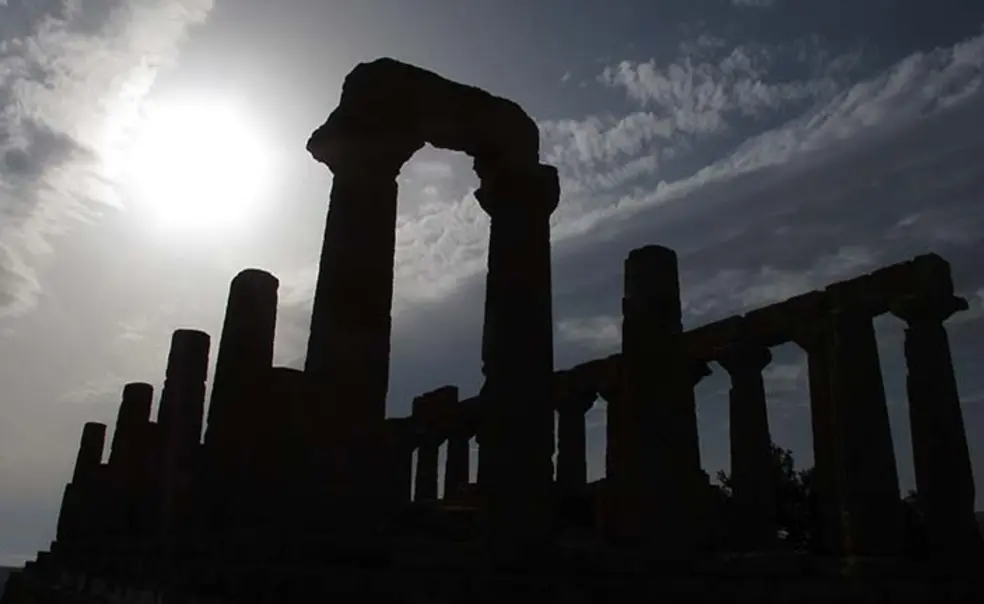Essay: Looking Beyond Language as Classics Evolves
An accidental classics major explores how archaeology, technology, and more are changing the field

I thought of Phalaris’ bull when I read the anguished reaction of so many alums to the news that Latin and Greek language study will no longer be a requirement for all classics majors. I wondered whether the outcry wasn’t music to the ears of the decision-makers in the classics department. Let’s face it, the distress of the letter writers — all of whom last sat in undergraduate classes in East Pyne 40 and 50 years ago — may have its welcome side for a current faculty anxious to be and be seen as agents of change in 21st-century academia.
My suggestion would be that we stop and think about this thing in terms that go beyond the usual debate over “political correctness.” Really, we can do better than Fox News.
Traditionally, “classics” in American academia was short for “classical philology,” philology in this case being the appreciation and study of the works of ancient Greek and Roman authors. At its heart, being a classicist meant you had taken the trouble to learn Greek and Latin and had read widely in the literature that had come down from antiquity in those languages. Context, of course, is important for reading anything, so the more that classicists knew about the politics, religion, intellectual outlook, culture, morals, economics, and technology of the world around a given ancient author, the better. This was true whether the book in front of them was one of the Homeric epics, composed in the relatively backward, politically fragmented Aegean region of the eighth century BC, or the Annals of Tacitus, written in Imperial Rome in the second century AD. But the whole point of the endeavor was philology — an informed reading of the venerable corpus of Latin and Greek — in other words, of the classics. For much of the 20th century, as long as you had good command of Greek and Latin and were reasonably well versed in the corpus — at least in those select ancient writings that were generally considered the canon — you essentially had all you needed to make a living as a college classics professor.
Philology’s preeminence was already on borrowed time when classics majors my age went off to graduate school in the 1970s. The idea that one studies Greco-Roman antiquity in order to be able to read a sanctified set of books was beginning to feel like the tail wagging the dog. What had once been ancillary disciplines, like the archaeology and anthropology of classical antiquity, were increasingly recognized as having value in their own right rather than simply as tools for elucidating the philologists’ precious (and they are precious) texts. Gradually, classics was evolving into something other than “the classics.” It was becoming the objective study of the ancient Mediterranean world through every means available. And that process has only accelerated with each passing decade. Astonishing advances in science and technology allow scholars to interrogate physical remains from past millennia and unlock secrets that would have been considered unrecoverable when I signed up for Greek at Princeton. People who understand, for example, DNA extraction and amplification techniques or LiDAR (light detection and ranging) are able to resolve questions about the age of Pericles that no reading of the contemporary sources — Thucydides et al. — would ever settle.
Even so, until very recently the umbrella organization for academic classicists in the U.S. continued to be called the American Philological Association, as it had been since its founding in 1869. It was only in 2013 that the APA changed its name to the Society for Classical Studies (SCS), a literal — and politely framed — redefinition of the field. Less politely put, the field was no longer “philology and its groupies.” History, archaeology, art history, ethnography, and a host of other relevant disciplines were now philology’s equals in a loose and sometimes fractious coalition of pursuits aimed at studying the ancient classical world. The words “classical” and “classics” did survive, although tenuously and as legacy terms — really, only for convenience.
It seems to me, then, plausible to do a classics major as an undergraduate at Princeton without studying Latin or Greek. To the best of my knowledge, the history department has no language requirement for its majors. You can write your senior thesis on the early career of Genghis Khan without learning a word of Middle or Classical Mongolian (or Chinese), you can write about the Molotov-Ribbentrop pact with no Russian or German, and you can write about the PKK with no Kurdish or Turkish. Why, then, should a different standard apply to students whose main interest is in the history of the Greeks and Romans?
That said, the Department of Classics probably is making a calculated gamble that officially demoting (so to speak) philology will actually have the effect of boosting it — if by that we mean jacking interest and enrollment in Latin and Greek. No longer frightened off by the requirement to learn these formidable languages, which to many undergraduates looks like a snarling dog at the gates of classics, more of them will sign up for the program in order to learn the things that capture their imaginations: the history, culture, politics, religion, etc., of the ancient world. And before they know it, a fair number of them will feel their imaginations tap them on the shoulder and say, “Don’t you want to know what it’s like to read these people’s writings in their own words, just as they wrote them millennia ago?”
That’s not unlike the way I got my start in the classical languages. When I arrived at Princeton as a freshman, I had no thought of studying Greek or Latin, or of taking any classics courses. I was leaning towards a German major. But the German authors I was most interested in — Goethe, Schopenhauer, Nietzsche — talked endlessly about the Greeks. Nietzsche even taught classical philology himself for a time. So I stuck my toe in, darkening the classics department’s door for the first time in fall of my sophomore year to attend beginning Greek. No requirement made me do it. I still thought of Greek as something to help me understand 19th-century German thinkers so I could be a smarter German major. That changed in a hurry. I added beginning Latin the following semester. Soon the hook was in my mouth — for me, it was reading Homer in the original more than anything else — and I was an accidental classics major.
After graduating from Princeton, George Angell ’76 earned an M.A. in classics at the University of North Carolina (Chapel Hill). He served for 37 years as a linguist and foreign affairs analyst with the U.S. government, retiring in 2019. He lives with his wife in Baltimore, where he is currently translating two Turkish novels.










No responses yet